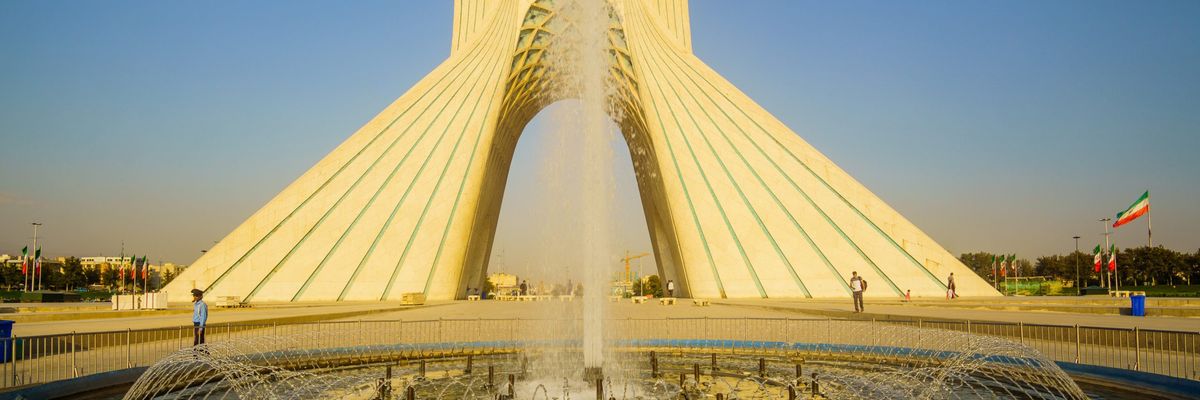The possible strategic agreement between Iran and China presents concerns not only for the United States, but also for one of the premier powers of the Asian continent: India.
On a visit to Tehran in May 2016, Indian Prime Minister Narendra Modi signed a memorandum of understanding with Tehran in a meeting with Iranian President Hassan Rouhani to develop the strategic Iranian seaport of Chabahar.
Chabahar, located in southeastern Iranian province of Sistan and Baluchestan on the Sea of Oman serves as Iran’s only oceanic port and its closest to international waters in the Indian Ocean. The port consists of two nodes (terminals), each of which has five berths built in an area of 485 hectares.
The $1.6 billion memorandum of understanding between Iran and India was also signed to build the Chabahar-Zahedan railway, which was slated to link India to Afghanistan, as well as Central Asia, through Iran. Needless to say, Pakistan has for a long time denied India to use its soil as a transit route.
India saw signing the Chabahar agreement with Iran as a counterbalance to China’s action in signing an agreement with Pakistan to develop Gwadar port in 2015. The Gwadar port is situated only 350 km by land and 140 km by sea from the port of Chabahar.
But more than four years after signing the Tehran-New Delhi memorandum, the Chabahar development project has seen no progress even as the news of a 25-year Iran-China strategic partnership arrived recently.
Much to New Delhi’s dismay, on July 16, Kheirollah Khademi, Iran's Deputy Minister of Roads and Urban Development, confirmed the earlier reports that India had been dropped from the Chabahar-Zahedan railway project, citing funding delays.
Although Iranian officials have not cited the strategic agreement with China as a reason for excluding India from the Chabahar project, political commentators are well aware of the increasing tensions and rivalry between India and China.
It seems that the main reason why Iran dropped India from the Chabahar-Zahedan project was exactly what has been officially stated by the Iranian officials — that India’s delay in fulfilling its obligations to finance the project, as well as the country's behavior in the aftermath of Trump’s 2018 pullout from the Iran nuclear deal and re-imposition of unprecedented sanctions. New Delhi, which has built warmer relations with Washington, especially during Modi era, seems to have favored to be part of Donald Trump’s maximum pressure campaign against Tehran.
Even so, in November 2018, U.S. Secretary of State Mike Pompeo officially announced that the Chabahar port project would be exempted from the U.S. sanctions.
Furthermore, India halted its oil purchases from Iran in April 2019 and preferred to abide by the U.S. anti-Iran campaign. By contrast, China has remained the biggest buyer of Iran’s crude oil, and has been regularly praised for its support by the Iranian officials.
What is Iran’s position?
Why did Iran react this way to India’s behavior? Commentators have provided two major answers: some argue that Iran, after waiting patiently for too long, came to the conclusion to decisively call off the joint project with New Delhi and announce that it will carry it out itself. Those who favor this argument also claim that Iran has been in talks with China over the Chabahar-Zahedan railway project, and that the Chinese have expressed interest in developing the important Iranian port as well as the railway.
At the same time, the China-India rivalry, as well as Beijing's attempts to limit India's geopolitical ambitions could be driving China’s interest in joining the Chabahar port project. China's presence in Chabahar not only eliminates the risk of Iran’s port rivaling the Pakistani port, and gives control of both ports to China, but also, it denies India access to this oceanic port, and more importantly, to Afghanistan and Central Asia.
But the second analysis focuses on Iran's double game: Iran is aware of the differences and rivalries between New Delhi and Beijing. Accordingly, Iran will not put all its eggs in the Chinese basket and will not fully give the Chabahar port development project to China. At least, it hasn’t so far.
In line with this explanation, Saeed Rasouli, the head of Iranian railways, said on July 10, 2020 about excluding India from the railway project that "based on the decision of the authorities, it is planned to allocate 300 million euros from the government budget to implement this project." This means that Iran had not still said it would take the project from India to China.
However, one has to bear it in mind that Iran's anger with India over its adherence to U.S. anti-Iranian policies is still a factor.
"I never thought that an independent country like India would be willing to follow the United States‘ footsteps and refuse to buy oil from us," said Ishaq Jahangiri, Iran's first vice president, on December 17, 2019.
In conclusion, Iran may have wanted to warn India that if its reluctance continued, it would no longer retain its role in Chabahar project, and instead Tehran would invite greater Chinese involvement. India certainly would not welcome this, as it could add to its geopolitical constraints in the region at a time when tensions with China and Pakistan have increased significantly.
















